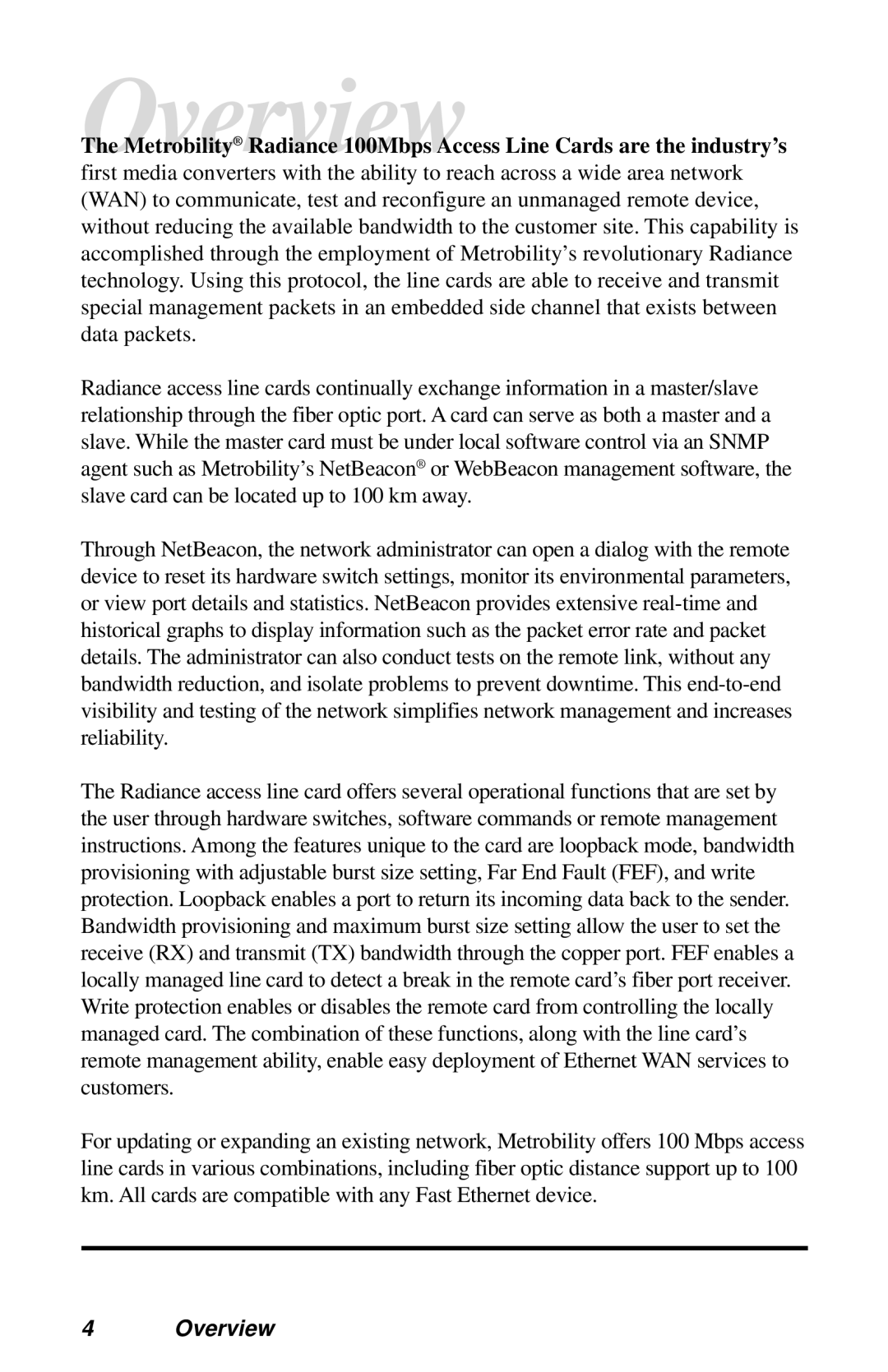TheOverviewMetrobility® Radiance 100Mbps Access Line Cards are the industry’s
first media converters with the ability to reach across a wide area network (WAN) to communicate, test and reconfigure an unmanaged remote device, without reducing the available bandwidth to the customer site. This capability is accomplished through the employment of Metrobility’s revolutionary Radiance technology. Using this protocol, the line cards are able to receive and transmit special management packets in an embedded side channel that exists between data packets.
Radiance access line cards continually exchange information in a master/slave relationship through the fiber optic port. A card can serve as both a master and a slave. While the master card must be under local software control via an SNMP agent such as Metrobility’s NetBeacon® or WebBeacon management software, the slave card can be located up to 100 km away.
Through NetBeacon, the network administrator can open a dialog with the remote device to reset its hardware switch settings, monitor its environmental parameters, or view port details and statistics. NetBeacon provides extensive
The Radiance access line card offers several operational functions that are set by the user through hardware switches, software commands or remote management instructions. Among the features unique to the card are loopback mode, bandwidth provisioning with adjustable burst size setting, Far End Fault (FEF), and write protection. Loopback enables a port to return its incoming data back to the sender. Bandwidth provisioning and maximum burst size setting allow the user to set the receive (RX) and transmit (TX) bandwidth through the copper port. FEF enables a locally managed line card to detect a break in the remote card’s fiber port receiver. Write protection enables or disables the remote card from controlling the locally managed card. The combination of these functions, along with the line card’s remote management ability, enable easy deployment of Ethernet WAN services to customers.
For updating or expanding an existing network, Metrobility offers 100 Mbps access line cards in various combinations, including fiber optic distance support up to 100 km. All cards are compatible with any Fast Ethernet device.
